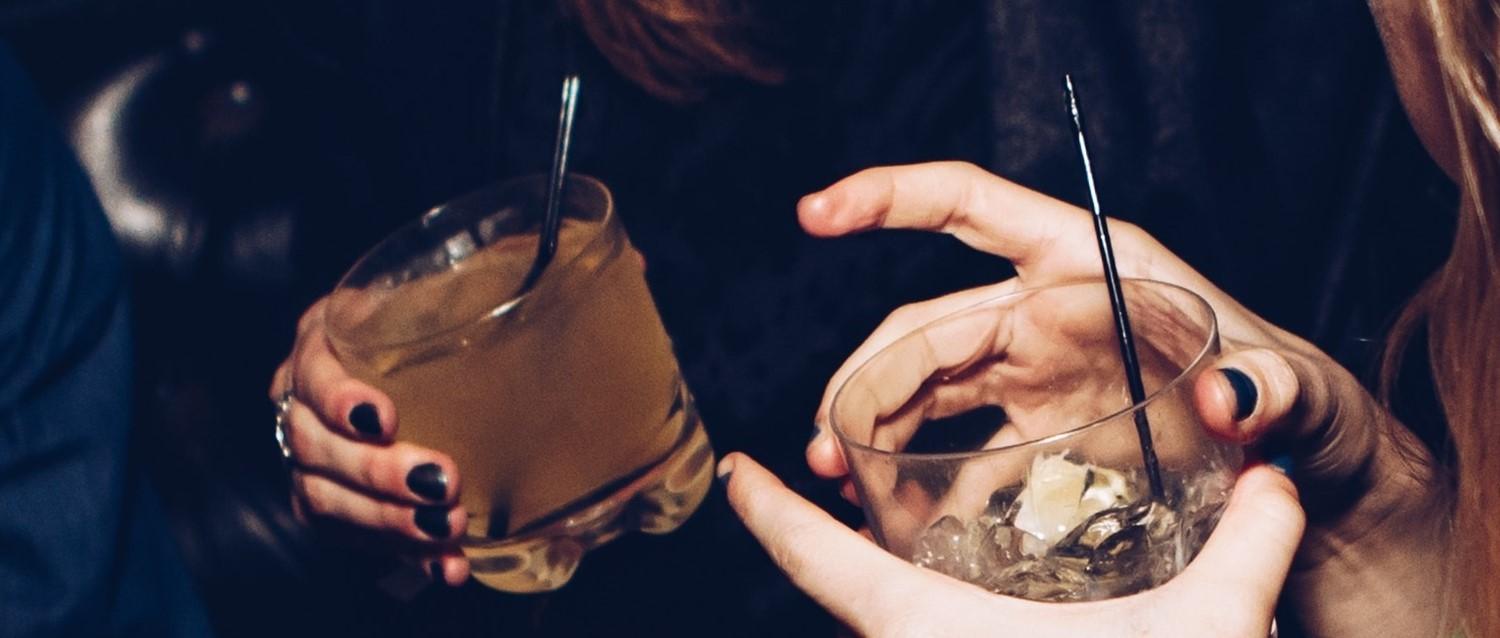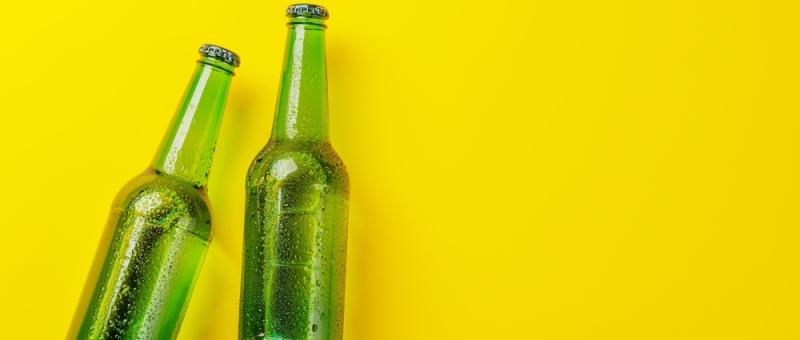
How to drink sensibly over the festive season
Peer reviewed by Dr Sarah Jarvis MBE, FRCGPLast updated by Milly EvansLast updated 12 Dec 2019
- DownloadDownload
- Share
Across the UK, offices are gearing up for their Christmas parties, pubs are taking bookings for get-togethers and many are busy organising their social calendar through into next year. For many, festive drinks will be part of the package. But you shouldn't throw all of the health rules out of the window in the name of Christmas.
In this article:
"Whether you face juggling festive celebrations, or whether this time of year is particularly tough for you, there can be a number of triggers that make you feel pressured to drink more than you usually do," says Jennifer Walters, spokesperson for Drinkaware.
We're not suggesting that you don't drink at all this festive season (although there are plenty of benefits to going sober if you choose to). But nonetheless, it's a good idea to make sure that you're aware of just how much you're drinking and the impact it has on your body.
Reducing your alcohol intake is one of the best things you can do for your health. Whilst your social calendar might have a boost throughout December, your liver shouldn't have to face the consequences.
After all, no one wants to end up with a hangover on Boxing Day or start the new year unable to remember what happened last night ...
Continue reading below
Think about the season as a whole
According to Drinkaware's recent research, almost two thirds (61%) of drinkers in the UK overindulge in alcohol over the festive season more than they usually do, with one in five (18%) saying that they typically suffer more hangovers over the Christmas period.
Naturally, drinking a large amount of alcohol all at once isn't a good idea because you increase your risk of injury and alcohol poisoning, as well as making it more likely you'll do something you regret. But binge-drinking isn't the only thing to avoid.
UK guidelines from the Chief Medical Officer state that, in order to minimise risks to health, both men and women are advised not to regularly drink more than 14 units of alcohol a week. That's equal to six pints of 4% beer or six 175 ml glasses of wine across the seven days, with alcohol-free days built into your week.
But don't think that you can 'save up' your units for one big night. Heavily drinking on one or two days a week increases your risk of injury and long-term illness. If you're regularly reaching the 14 unit limit, spread your intake across several days to minimise your risk of alcohol-related health problems like cancer.
And remember that 14 units a week is a limit, not a goal!
Drink mindfully
Mindful drinking is all about being aware of your drinking, how it makes you feel and deciding when or if you really want to drink.
There are lots of social occasions at which you might drink because you feel obligated, like the 33% of drinkers who feel pressured to do so at their work Christmas party. You might also do it mindlessly, pouring a glass of wine after work or letting someone refill your glass or buy another round. Take a second to think about if and why you really want that drink before going for it.
Reducing your intake can be as simple as forgoing a glass of wine with a meal or delaying your first drink. It's harder to decide if you truly want to keep drinking once you've already started.
These days there are usually plenty of alcohol-free drinks available. No one has to know that you're not drinking if you don't want them to.
"The growing market of creative and tasty drinks that don't have alcohol has never been bigger," says Walters. "And venues are embracing the trend, so don't be afraid to ask what alcohol-free options they have behind the bar."
But be wary about replacing every drink with fizzy or sugary soft drinks as they have little nutritional value and are harmful for your health.
Patient picks for Alcohol advice

What are the dangers of drinking in hot weather?
Whether it's after work drinks, post-exam celebrations, or weekends spent in pub gardens, drinking in the sun can be a big part of summer culture. If this activity is part of your summer plans, how can you limit the dangers that accompany the sun-alcohol cocktail? And if you have a teenager, how can you keep them safe?
by Lawrence Higgins

Digestive health
Alcohol and sensible drinking - safe limits of alcohol
In the UK, almost half of adults drink alcohol once a week or more. About a quarter of all adults report drinking more than the recommended weekly limit of alcohol.
by Dr Doug McKechnie, MRCGP
Continue reading below
Family and friends
It's easy to plan not to drink, but putting it into practice is harder, especially when everyone around you will be drinking. It's a good idea to have a chat with your friends or family about why you're reducing your drinking.
"You may find that you can be more open about your progress with them and they'll understand why you're turning down alcoholic drinks. Using an alcohol tracking app (such as Drinkaware's Track and Calculate Units app) can also support you if you want to share your limits with others," Walters suggests.
If you know that you'll find it hard to resist alcohol at parties or get-togethers, tell those around you. Ask them to support you rather than pressuring you to drink. It's OK to turn down invitations if you feel you'll be pressured into drinking when you don't want to. More than one in ten (13%) of UK drinkers admit they avoid social occasions during the festive season because of the pressure to drink alcohol.
But, as Walters puts it, "reducing drinking is definitely not about reducing the fun you have with your friends and family."
Drinking less alcohol doesn't have to mean missing out. "Let them know you'll still be coming to festive celebrations, but maybe alternate alcohol with soft drinks or alcohol-free cocktails at the pub, and bring alcohol-free or low-alcohol drinks with you to parties. You might be surprised to find others want to join you on your journey this Christmas."
And your festive celebrations don't have to revolve around alcohol. From Christmas markets to film nights, quizzes to carol concerts, there are plenty of alternative social events you can suggest.
What about food?
Thinking about when and what you're eating isn't just about your waistline.
Make sure that you eat a balanced meal of carbohydrates, proteins and fats before you start drinking as this slows the absorption of alcohol into your bloodstream. Remember that alcohol makes you dehydrated, so avoid salty foods which will only dehydrate you more.
Drink plenty of water before you go out and keep sipping on plain water between alcoholic drinks. Alternating alcoholic beverages with water and food can make a big difference on how you feel while drinking and the following day. Plus, you won't feel the need to buy more drinks because you won't be thirsty.
Continue reading below
Staying safe on the roads
Driving under the influence of alcohol is extremely dangerous, but sadly many people take the risk. In 2017, 10% of all drink driving offences happened in December. This equated to 179 people caught driving under the influence of alcohol every day throughout the month.
"The safest advice is to avoid alcohol altogether if you are driving. Even small amounts of alcohol can affect your ability to drive," says Walters.
The legal limit for driving is 50 mg of alcohol per 100 ml of blood in Scotland and 80 mg in the rest of the UK. "There is no foolproof way of drinking and staying under the legal limit for driving other than not drinking at all. It can depend on factors like your weight, age, sex and metabolism (the rate your body uses energy), amount of alcohol you've drunk and whether you've eaten recently," Walters continues.
"Typically, it takes roughly an hour for your body to process one unit of alcohol, and there is nothing you can do to speed this up."
Still feeling drunk the morning after a night drinking? That's because your body hasn't processed the alcohol yet. As a rough estimate, if you were to drink three pints of 4% beer, your body would take around seven hours to process the alcohol - but it could be longer for some people.
"Be aware of driving the morning after," says Walters. "Just because you have been to sleep does not mean that you are no longer affected by alcohol. The only thing that will sober you up is time."
Always ensure you have a safe way to get home, whether that means waiting until later the next day to drive home, deciding on a designated driver or arranging to get a taxi home.
Article history
The information on this page is peer reviewed by qualified clinicians.
12 Dec 2019 | Latest version

Ask, share, connect.
Browse discussions, ask questions, and share experiences across hundreds of health topics.

Feeling unwell?
Assess your symptoms online for free